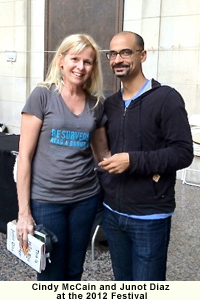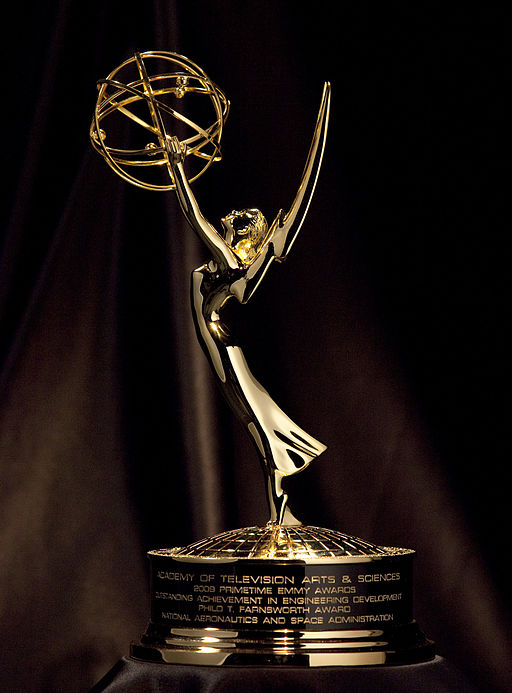Going Way Back Together
Remembering twenty-five years of inspiration at the Southern Festival of Books
It’s time again for the Southern Festival of Books, and I can’t wait to see Jill McCorkle discuss her new novel, Life After Life. My students tease that I’ll tailgate the night before. I might actually do it. Celebrating its twenty-fifth year, the three-day festival will be a real homecoming for readers and writers alike.
Dan bought McCorkle’s novel, Tending to Virginia, in 1988, and I read it to him as we drove to Florida on vacation. We were expecting our first child . . . again. (I’d miscarried my previous pregnancy.) Virginia and I, both twenty-eight, shared complications that made our conditions “delicate.” She’d moved home so her mom and grandmother could look after her, and, likewise, the womenfolk in my family were fussing over me. Dan and I understood the Southern Speak of Virginia’s kin because she had our families—who go way back—down pat. Dan’s Granny and my Mama Lou had been friends since our dads were best pals in high school.
I lost that pregnancy, too, but was carrying our firstborn, Taylor, when we met McCorkle a year later at the Southern Festival of Books. Dan couldn’t wait to meet Reverend Will D. Campbell from just-down-the-road Mt. Juliet, Tennessee. Brother Campbell was one of four civil-rights activists to escort the Little Rock Nine, African-American students integrating an Arkansas high school, past an angry mob. He was the only white minister present at the founding of the Southern Christian Leadership Conference by Martin Luther King Jr., and his memoir, Brother to a Dragonfly, made Dan cry. This fall Campbell’s absence from the festival will sadden many. At his memorial service in June, 700 friends and fans—musicians, authors, Freedom Riders, and clergy—crowded into a Mt. Juliet church to pay their respects.
 I didn’t understand the civil-rights movement in 1973 when I met Dan in seventh grade. Our rural Kentucky middle school had been forced by federal court order to integrate, but our textbooks didn’t cover social justice or laud the leaders who fought the crusade. My only schooling on civil disobedience was by Billy Jack, the movie hero who fought against racial discrimination, and the National Guard’s shooting of unarmed students at Kent State. I was almost thirty when I finally met the real deal: Will Campbell was a war veteran and preacher who protested the Vietnam War and criticized pulpit politics that supported racism in the South. Like McCorkle, he inspired me.
I didn’t understand the civil-rights movement in 1973 when I met Dan in seventh grade. Our rural Kentucky middle school had been forced by federal court order to integrate, but our textbooks didn’t cover social justice or laud the leaders who fought the crusade. My only schooling on civil disobedience was by Billy Jack, the movie hero who fought against racial discrimination, and the National Guard’s shooting of unarmed students at Kent State. I was almost thirty when I finally met the real deal: Will Campbell was a war veteran and preacher who protested the Vietnam War and criticized pulpit politics that supported racism in the South. Like McCorkle, he inspired me.
Subsequent festivals inspired me as a writer, too. I’d been too young in the ‘60s to fight for equality for African Americans, but decades later I became informed and fueled at the Southern Festival of Books while listening to a panel discussion on immigration reform. Later I would cover the American Immigration Lawyers Association convention the day the historic Deferred Action Plan was announced. Now my beat is Hispanic cultural events in Nashville, and I have cherished festival sessions by Latina writers Teresa Dovalpage and Marisel Vera, and by Pulitzer Prize-winner Junot Diaz.
The Southern Festival of Books taught me that writing is a calling I can’t deny. Another one of Dan’s favorite authors, Ferrol Sams—a country doctor who passed this year, as well—wrote books that felt like comfort food: Run with the Horsemen reminded us of home when we moved to Music City from a Lexington horse farm. Ferrol Sams also taught me discipline. When he mentioned during a session at the Southern Festival of Books that he wrote every morning before seeing his first patient, I realized I had to make time for writing despite the hours I spent as a mom and English teacher. Michael Lee West from Lebanon, Tennessee, also encouraged as well as entertained me. Her books make me laugh aloud, and she began her writing career while working as a full-time nurse.
Southerners are all about place, and writers Kaye Gibbons, Lee Smith, and Rick Bragg remind me that there is no place like home. So I write what I know—of the Old South of my childhood and of the New South where I dance salsa every week. I love that readers and writers from around the world—like the couple from England who buy my literary t-shirts in the Nashville Writers Meetup booth—migrate every year to the Southern Festival of Books. I’ll never forget Carsten Kaaz reading from his memoir, In the Shadow of the Wall. Inspired by the music of Elvis and determined to get to Memphis, he was one of the few who escaped communist East Berlin. Yankee Susan Orlean from The New Yorker also inspired me to write nonfiction. In her festival session she said she’s always been curious about real people, finding them more fascinating than fiction. I agree. From Jimmy Carter to Jimmy Buffett I’ve met some real characters at the Southern Festival of Books.
Two years ago I ran into a former student at the festival. She’d brought her toddler to meet Mo Wellems, author of Don’t Let the Pigeon Drive the Bus!, and I realized I’d come full circle. Just yesterday I was the one pushing my babies around Legislative Plaza. They’re grown now, and Dan and I aren’t together any more, but I will probably bump into him at one of the sessions—maybe McCorkle’s.
I remember when I asked Jill McCorkle years ago which Southern classic was her favorite. She said, To Kill a Mockingbird. “Mine, too,” I said. A few years later I emailed her with a writing question. She answered it immediately and cheered me on. She has retired from teaching at Harvard to live in the South again, and she looked really happy in a recent profile in The New York Times. I can’t wait till she reads from her new novel, Life after Life, at this year’s festival. The setting is a retirement home. She is fifty-five, and I am fifty-four: we’re both far from being put out to pasture. We just go back a quarter of a century.
Copyright (c) 2013 by Cindy McCain. All rights reserved. Cindy McCain is a writer, English teacher, and creator of Classic Coup, a t-shirt company that promotes reading and sends books to Ecuador. In 2011 she received the Journalism and Hispanic Community Award from the Nashville Area Hispanic Chamber of Commerce.


